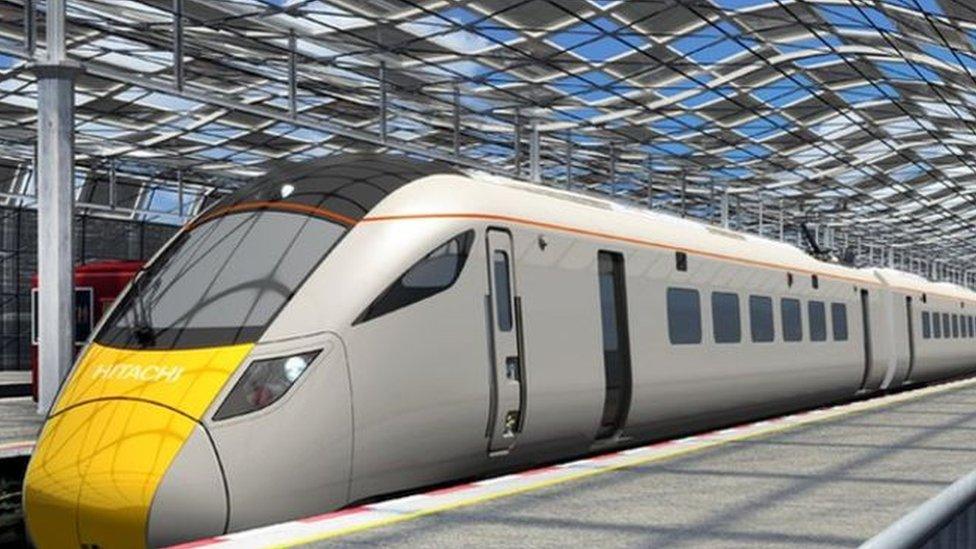Rail electrification between Cardiff and Swansea scrapped
- Published
- comments
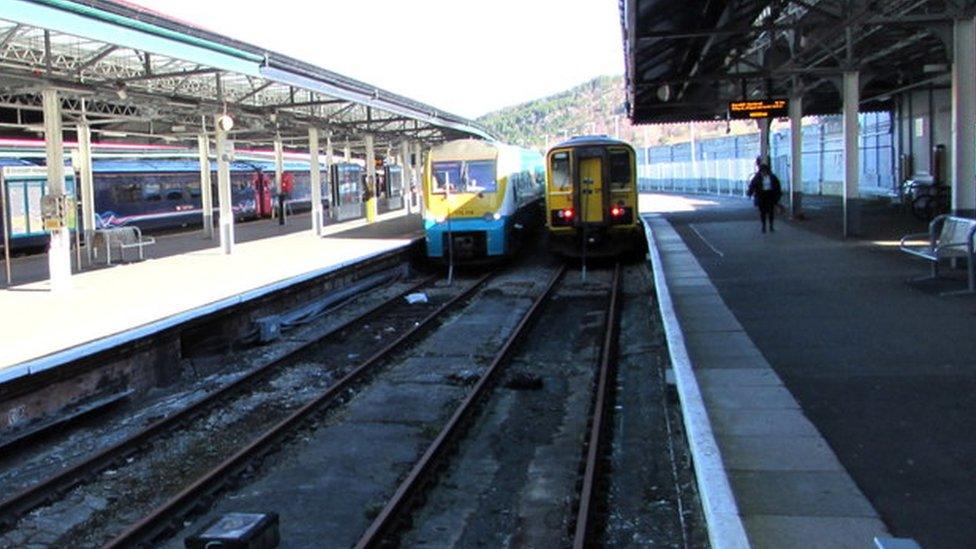
Chris Grayling has promised a "whole package of improvements" for the service
Plans to electrify the Great Western Railway line between Cardiff and Swansea have been scrapped, the UK's transport secretary has said.
Chris Grayling told the Western Mail, external a faster journey between the cities would be achieved without the "needless disruption of engineering works".
He said a new fleet of trains would be on the line from the autumn, with 130 extra seats per train.
The first minister said the news was "disturbing".
Carwyn Jones tweeted, external: "Disturbing reports on rail electrification in the media this morning - waiting for the UK government to clarify."
Plaid Cymru leader Leanne Wood tweeted, external: "Wales gets 1% of rail investment despite making up 6% of the UK network. And now this."
The party has now tabled a motion in the assembly condemning the move.
It called on the government to reconsider, with South Wales West AM Dai Lloyd calling it a "shameful climb down".
Swansea council leader Rob Stewart said he was "angry" at the decision and felt "betrayed" by the UK government.
While Neath Port Talbot council leader Rob Jones said it was "a kick in the teeth" for the region and its businesses.
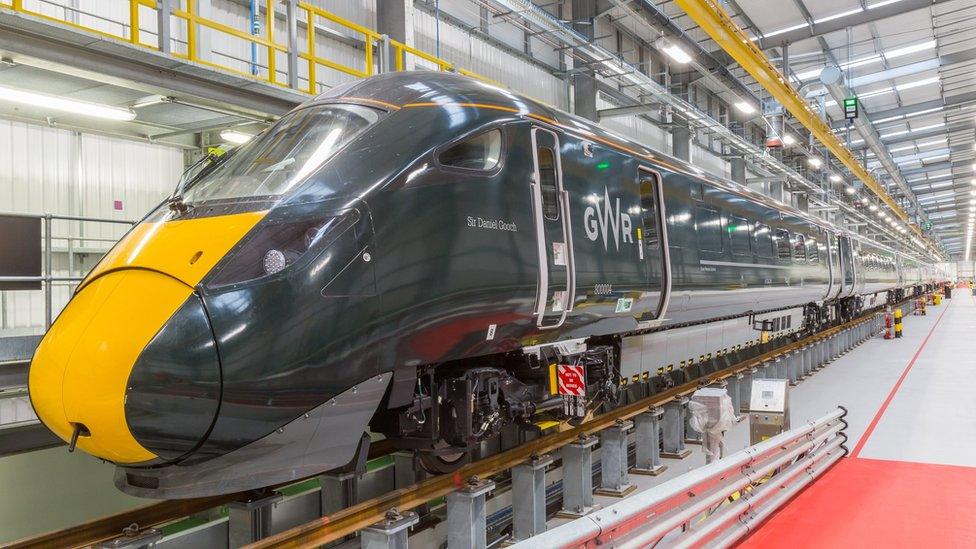
The new hybrid trains will look like this
Network Rail is working to deliver electrification between London and Cardiff by December 2018.
Making the announcement, Mr Grayling committed to 40% more seats on rush-hour journeys between Swansea and Cardiff.
He said the new trains would be bi-mode, meaning they could run on electrified sections of track and then transfer to non-electrified sections.
A Great Western Railway spokesman welcomed the decision to upgrade the power of the trains in diesel mode, saying: "In the context of today's announcement, this offers the best solution to protecting the kind of faster journey times, frequency and capacity benefits customers have been looking for."
Mr Grayling also announced:
plans to improve journeys times and connections between Swansea and Cardiff, south Wales, Bristol and London
plans to improve journeys times and connections across north Wales
direct services from Pembroke Dock to London via Carmarthen on new Intercity Express trains
station improvements at Cardiff and Swansea
"The speed limit on the Swansea-Cardiff route is such that the new fleet of trains will be doing the route in exactly the same amount of time as they would be on a fully-electrified route," he said.
"We will only electrify lines where it provides a genuine benefit to passengers which cannot be achieved through other technologies," he added.
'Broken promises'
But Wales' Economy Secretary Ken Skates disputed that claim, telling Radio Wales' Good Morning Wales programme: "I don't buy it."
He accused the UK government of "years of broken promises" and said Mr Grayling had not responded to his requests for a meeting on the issue.
"I'm urging the UK government to clarify the situation immediately," he added.
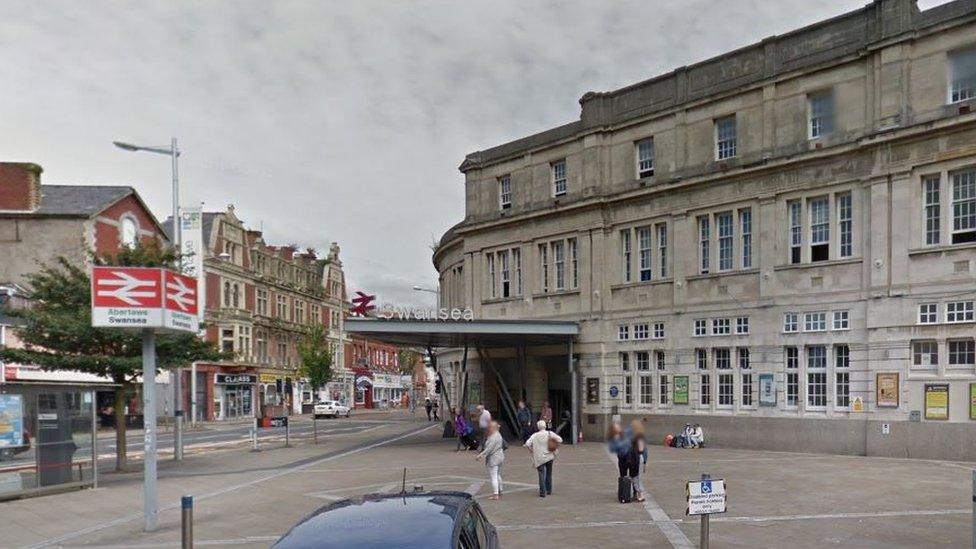
The electrification of the line was due to extend to Swansea but will now stop at Cardiff
Professor of Transport for the University of South Wales Stuart Cole said the announcement could prevent companies investing in Swansea.
"It affects its [Swansea's] image… what people like Siemens, Mitsubishi or any of the international big investors will say is 'if the UK government aren't prepared to invest in high tech for Swansea, why should we?'
"It means that Swansea won't get the kind of modern railway technology which cities of its size elsewhere in western Europe have had for several years."
Prof Cole added he believed the change of heart was down to mounting costs.
The Welsh Government said it had long called on the UK government to electrify the line to Swansea, or instead give it the powers and the funding to do so.
A spokesman said: "The UK government has so far refused to devolve funding for rail infrastructure, as was recommended by the Commission on Devolution in Wales, so it is its duty to invest in Wales. Today's reports in the media are therefore disturbing."
- Published18 July 2017
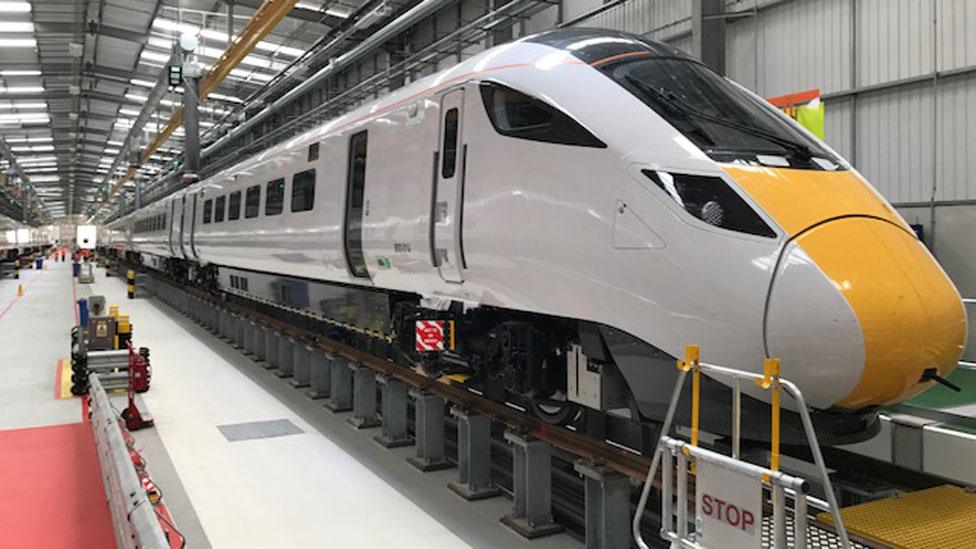
- Published21 October 2015
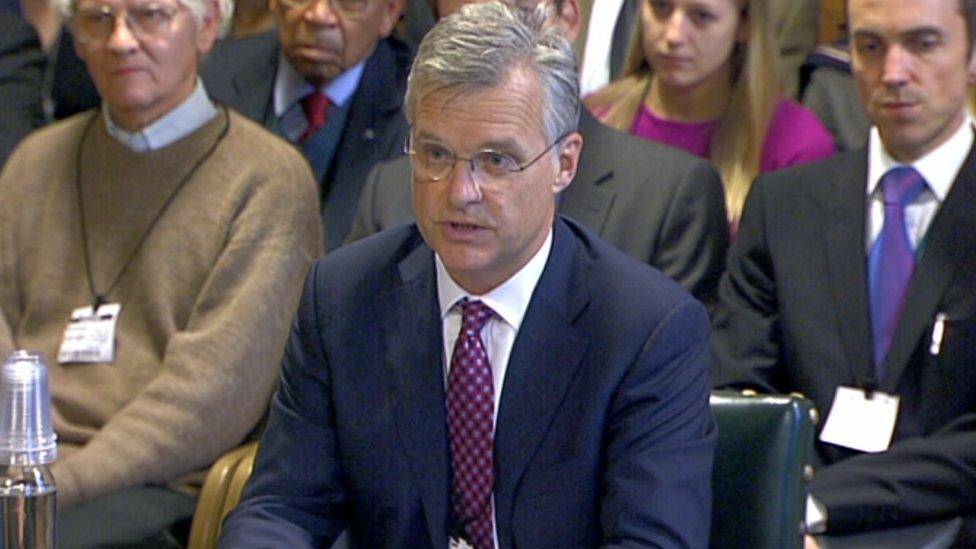
- Published20 November 2015
